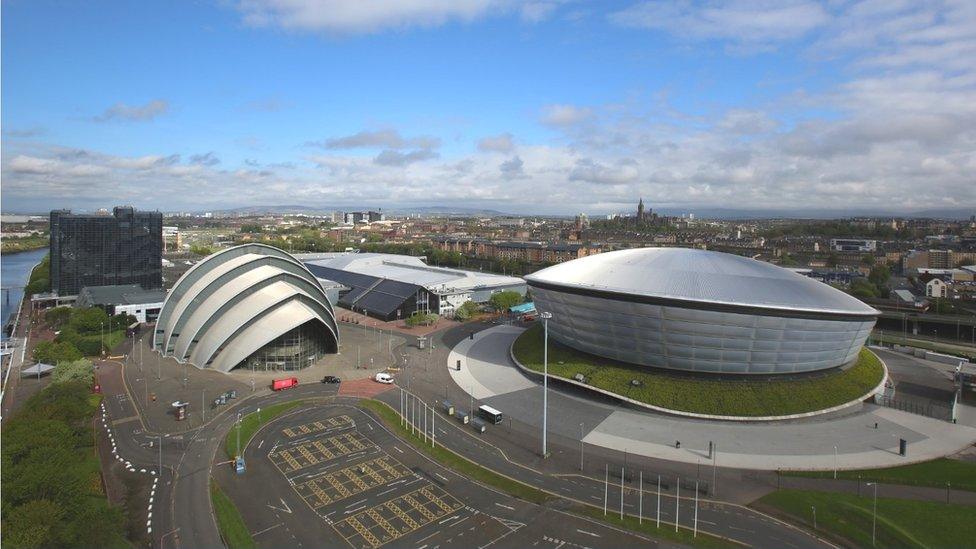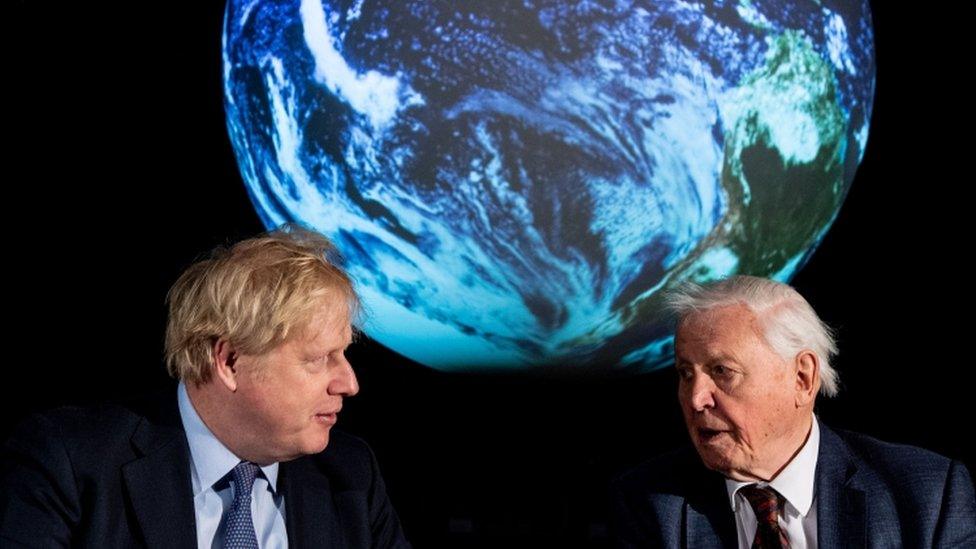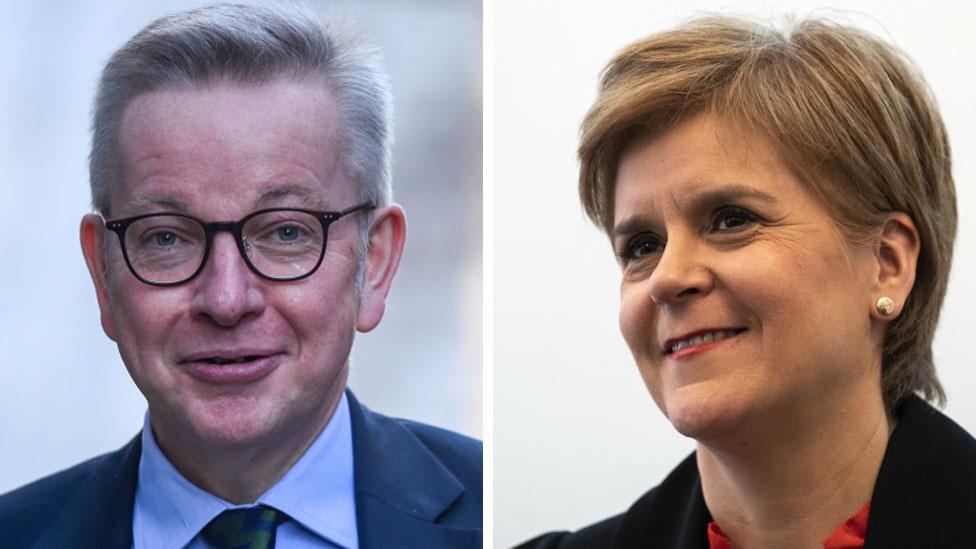COP26: Government insists COP26 summit will be in Glasgow
- Published

The Scottish Events Campus in Glasgow, which is due to host COP26, includes the Armadillo and the SSE Hydro buildings
The UK government has insisted that the COP26 climate summit will be held in Glasgow despite fresh claims that it could move the event to London.
The FT reported that the government has "opened talks" with the ExCeL London venue, external as a "fallback option".
But the government said it was standard practice to carry out "contingency planning" for major events.
A UK government spokesman told BBC Scotland: "As the PM said last week at the launch, COP will be in Glasgow".
The spokesman said planning for the UN summit was "well under way", and added: "We are committed to working with the Scottish government to make it a success".
The conference is due to be held at the Scottish Events Campus between 9 and 19 November, but there have been concerns about spiralling costs amid claims that the UK and Scottish governments have been at loggerheads over planning for the event.

Boris Johnson said the summit would be held in Glasgow when he formally launched COP26 alongside David Attenborough last week
Speculation that the summit could be moved was first sparked by comments made by former UK energy minister Claire O'Neill after she was sacked from her role as president of the conference.
Ms O'Neill said she had been told that the government was considering relocating the event to England - but her claim was strenuously denied by Downing Street.
She has also claimed that Prime Minister Boris Johnson had "heartily and saltily" refused to give Scotland's first minister, Nicola Sturgeon, an official role in the summit.
And she accused the Scottish government of behaving "disgracefully" ahead of the conference, and said the two governments were locked in a "stand-off".
The FT reported on Wednesday that it had been told by UK government officials that negotiations had started with the ExCeL London venue in the east of the city as a possible "fallback".
Asked about the London venue being lined up, the PM's press secretary added: "It is standard practice to carry out contingency planning for major international events at this stage."

Michael Gove and Nicola Sturgeon have both insisted that their governments are now working well together ahead of the conference
About 30,000 people, including some 200 world leaders, are expected to attend COP26, with Police Scotland warning that the cost of providing security could be more than £200m - partly because the force will need to bring in officers from elsewhere in the UK to help.
On Wednesday, Ms Sturgeon and the UK government's cabinet minister, Michael Gove, both sought to ease fears that the summit could be threatened by a political row between Westminster and Holyrood.
Ms Sturgeon said: "There are plenty of issues Boris Johnson and I can have squabbles about. This really should not be one of them.
"I personally and my government are committed absolutely and unequivocally to working closely and constructively with the UK government and with other partners in preparing for the COP26."
Meanwhile, Mr Gove - who has been tipped to replace Ms O'Neill as the president of the summit - said the UK had a moral responsibility to lead on climate change.
He insisted that the UK and Scottish governments were getting on "very well" ahead of the conference, adding: "You have a UK Conservative government working with a Scottish Nationalist Scottish government and, whatever their differences, a determination to make this a success."

What is COP26?

The Scottish Events Campus in Glasgow, which is due to host COP26, includes the Armadillo and the SSE Hydro buildings
It's a UN-led annual meeting set up to assess progress on tackling climate change
COP stands for Conference of the Parties. The parties in question are countries that have ratified the United Nations Framework Convention on Climate Change (UNFCCC)
The UNFCCC is an international environmental treaty that came into force on 21 March 1994
The first COP meeting took place in Berlin, Germany, in 1995
COP26, in November, will see about 200 world leaders meet in Glasgow to agree a new, long-term deal on rising temperatures
It's seen as particularly important because the Madrid COP last year left a raft of complex issues unresolved


